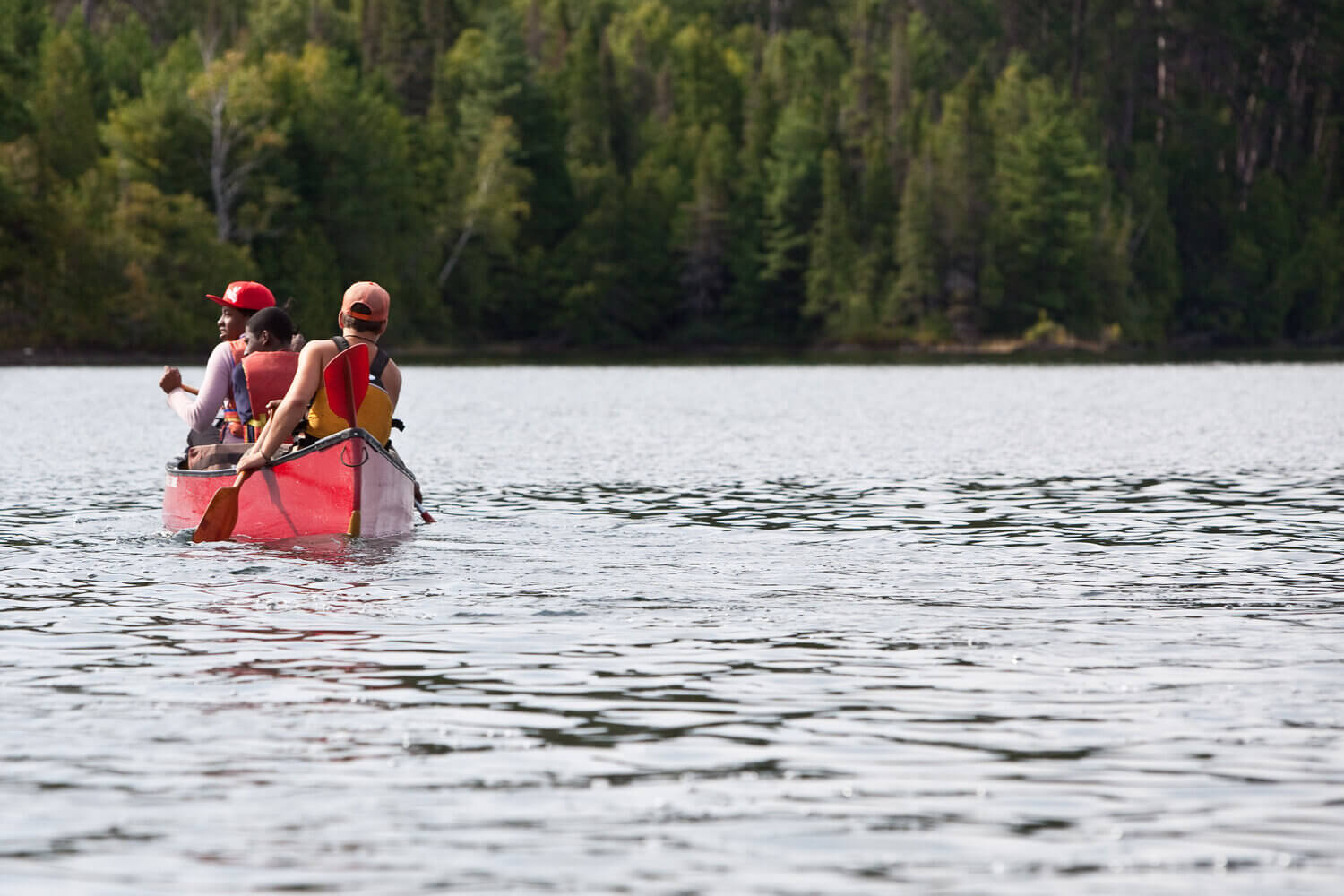The Importance of Outdoor Education with Project Canoe
Since the onset of the COVID-19 pandemic, young people across Ontario have had to go without opportunities for outdoor education, which had detrimental effects on their wellbeing. Studies have shown that outdoor education improves young people’s physical and mental health, sensory and self-awareness, motivation, attentiveness, mindfulness, attunement, social interactions, confidence, and resilience. Challenging activities, like skill-building exercises that are integral to outdoor education programming, facilitate learning that can be applied to a young person’s day-to-day life.
While youth have experienced isolation on and off due to lockdowns over the last two years, they have been more prone to a sedentary lifestyle, which can take a toll on their overall wellbeing. With schools out for the summer, many parents and caregivers are looking for ways to keep their children engaged and away from screens. Project Canoe is one outdoor education program that provides students with the opportunity to spend more time outdoors and helps them to identify the skills and abilities that they have within themselves. We spoke to them about their work, the role of outdoor education while navigating a worldwide pandemic, and their impact on youth.
Project Canoe is committed to supporting participants in overcoming the largest barrier that youth face in accessing outdoor education programs – a lack of financial resources, including program costs, transportation, and equipment. Even connection to nature during the pandemic varied depending on a young person’s socioeconomic status. “What we’re saying is, we’ll meet you where you’re at,” says Sascha Ellis, Executive Director, “and find out what you’re able to afford. And even if that’s nothing, we still want you to come in.”
They also provide a 1:2 staff-to-youth ratio, which allows young people to build deeper interpersonal connections with mentors and socialization skills with staff and peers. “It gives us a lot more ability to have a place where everyone feels welcome,” explains Jaimie Richards, Director of Programs & Operations.
Historically, outdoor education has not been representative of youth of different intersecting identities nor of youth experiencing oppression. In 2021, Project Canoe launched Local Explorers specifically for Black and Indigenous girls. The program is centred around creativity, teamwork, nature, storytelling, skill sharing, and guided therapeutic activities.
“Our programs have an impact, even within a short time.” — Sascha Ellis, Executive Director, Project Canoe
Evidence shows that exposure to natural environments can have long-lasting effects that are transferable to adulthood, reducing physical stressors, providing unique spaces for social interaction, self-reflecting, and physical activity, and offering stimuli that reduce stress and calm the nervous system. This is especially important due to the impacts of the pandemic, during which youth have been spending less time outside and more time engaging with technology.
Project Canoe prioritized keeping in touch with their community throughout the pandemic. “We make sure that there’s a touch point for youth no matter what, and so, throughout the pandemic, we had a virtual leadership program,” Ellis explains. “We still wanted to have that ability to connect with youth, celebrate their value, their abilities, help them touch base with other things, and learn and grow.”
In Ontario, outdoor education programs primarily operate in the summer, which can result in funding challenges, even as youth return to in-person programming. “I think one of the biggest challenges that we face is that we’re such a summer-centric program, right?” says Ellis. “The bulk of our program is in the summer, and a lot of funders and foundations and corporations want to fund year-round programming.” Many funders do not see value in a program that only lasts for a few months, but these months outside of school provide critical opportunities for youth.
Project Canoe realizes the significance of the time they have with their participants, and there’s lots of excitement for this summer’s cohort. “I get really excited about kids getting the chance to disconnect from technology for five to 14 days,” Richards exclaims, “and experience something that’s so different from what they do every day and to learn so much about themselves, and the beauty of nature outside of the city.”
Outdoor education contributes to positive youth development, enhancing mental health and wellbeing, facilitating authentic experiences, developing youth’s autonomy, and promoting opportunities for reflection.
Learn more about Project Canoe’s summer programming on their website or follow Project Canoe on Twitter and Instagram.
Photo courtesy of Project Canoe.


